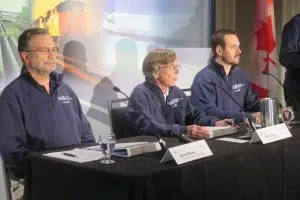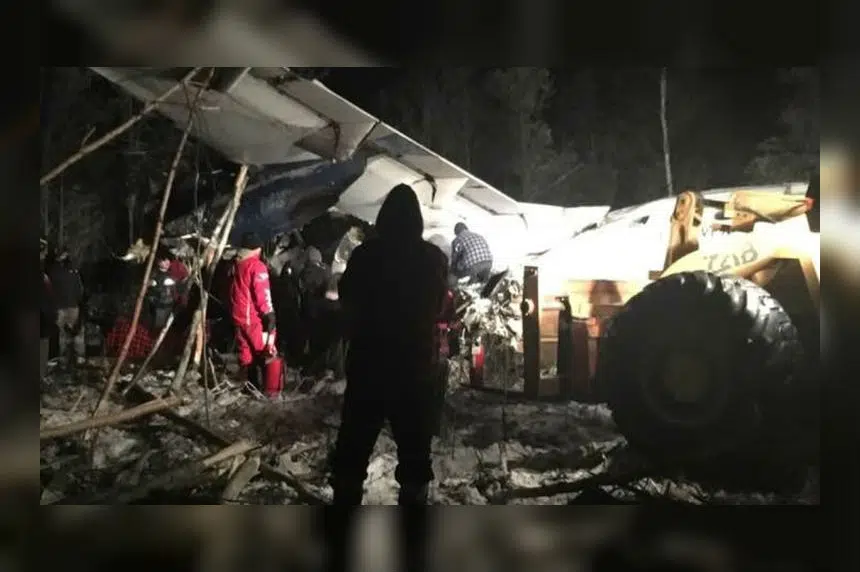The fatal December 2017 Fond du Lac airplane crash has now opened the Transportation Safety Board’s eyes to a nationwide problem with de-icing planes.
In a news conference Friday in Saskatoon, the TSB released their findings from an investigation that began over the Dec. 13, 2017 crash that injured 25 people aboard a West Wind Aviation passenger plane, including a 19-year-old man who died of his injuries days later.
West Wind flight 282 fell out of the sky 17 seconds after takeoff, and though the exact cause hasn’t been determined, initial findings discovered the plane had ice on it.
Lead investigator David Ross said there was de-icing equipment at the Fond du Lac airport, but it was “insufficient” for properly removing ice from the plane.
“Neither of the two available ladders was tall enough to permit de-icing of the wings or the horizontal stabilizer,” he said.
“Nor did the handheld spray systems have the capacity to clean the entire aircraft.”
Now the TSB is sounding the alarm over northern airports and plane de-icing, saying a broader investigation into the issue has found planes are frequently taking off from remote airports without being properly de-iced.

(Left to right) Transportation Safety Board lead investigator David Ross, chair Kathy Fox and Central Region senior investigator Eric Vermette answer media questions in Saskatoon, Sask. on Dec. 14, 2018. (Chris Vandenbreekel/650 CKOM)
Canadian aviation regulations ban pilots from taking off with frost, ice or snow on an airplane’s “critical surfaces” including the wings, stabilizers, turbines, propellers or landing gear.
A survey of 665 pilots was conducted by the TSB, and only 37 per cent of them reported they’re able to have their aircraft de-iced effectively at remote airports.
Of the pilots who responded, 483 reported they had seen pilots take off with “contaminated critical surfaces” within the last five years.
The TSB issued two recommendations on Friday: that Transport Canada ensures proper de-icing equipment is available at remote airports, and that they take action to ensure pilots are complying with the rule banning takeoffs without de-icing.
TSB’s original plan was to release the findings along with a final report on the exact cause of the Fond du Lac crash, but chairwoman Kathy Fox said they decided the situation was more dire.
“We were certainly surprised, concerned,” she said. “That’s why we felt we had to make these recommendations on an urgent basis rather than waiting until the report is finalized.”
She noted thousands of people rely on northern air service for transportation to and from their communities, while supplies are also flown in to many areas.
“That’s why we want to make sure those airports are suitably equipped so that aircraft operating there during the icing season can be properly de-iced.”
Flight attendant thanks rescuers who helped save lives after crash
Jenny Tait was working as a flight attendant aboard West Wind Flight 280 when it crashed.
West Wind president and CEO Michael Rodyniuk hailed her as a hero for her efforts helping to get passengers off the plane.
“The way that she responded on that night when she was put to the test, she responded in an amazing manner, in a superhuman way.”
Tait took to Facebook to mark the one-year anniversary of the crash, writing a post detailing some of her experiences and thanking those who helped in the aftermath.
— With files from 650 CKOM’s Bryn Levy.











